The Irresistible Rise of Yu Shi
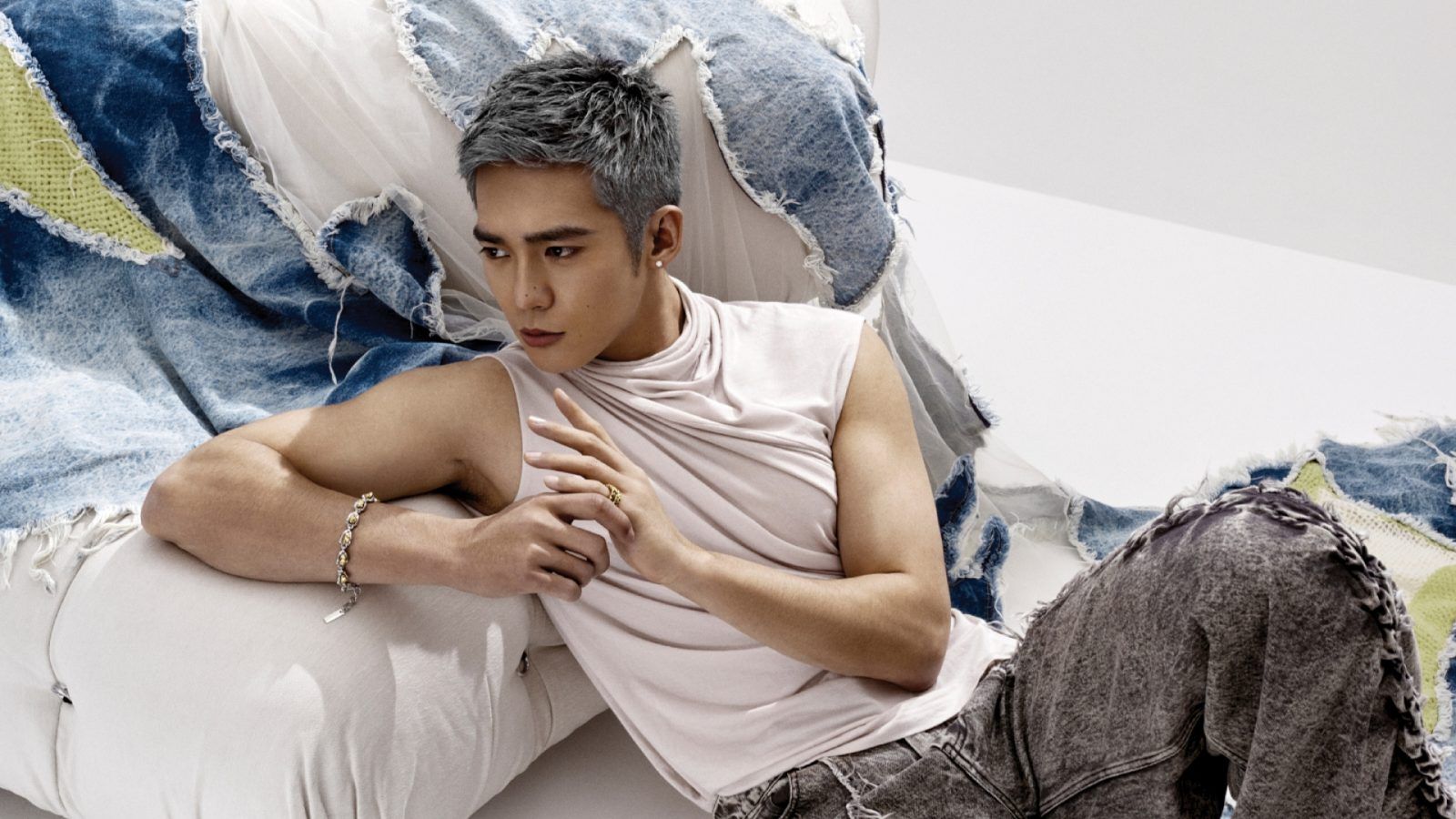

It took seven years for rising talent Yu Shi to gain the recognition he deserved, but rather than bask in its glory, he’s more determined than ever to get to work.
Photography and creative direction RICKY LO
Styling TASHA LING
Make-up ANNA
Hair SAM LO
Styling assistant MADELAINE CLARK
Make-up assistant EDEN
Photography assistants CHUNG SUN, KELVIN SIM and JASON LI
Translation AILING MENG
In a country whose population exceeds 1.4 billion, good actors are a dime a dozen. Sure, you’ll need talent and maybe some luck, but also an incredible amount of grit and determination to stand out and to succeed in most things. Young Chinese actor Yu Shi may seem to us to be a new talent, one who was propelled to stardom seemingly overnight with the success of The Creation of the Gods: Kingdom of Storms, which became the mainland’s top-grossing film of the year on its release last July. But ask Yu himself and he’ll flatly tell you of the struggles he went through to get to where he is today. He won’t forget his roots, or let fame turn his head and get into the way of his own ambitions.
“I’d go on auditions, but I always ran up against stone walls,” he tells me. Maybe that’s why when director Wuershan’s team came calling with an audition notice for The Creation of Gods, which stipulates an eight-month training period, Yu saw it not as a turn-off but the perfect opportunity.
To order the Prestige July issue with Yu Shi, click here
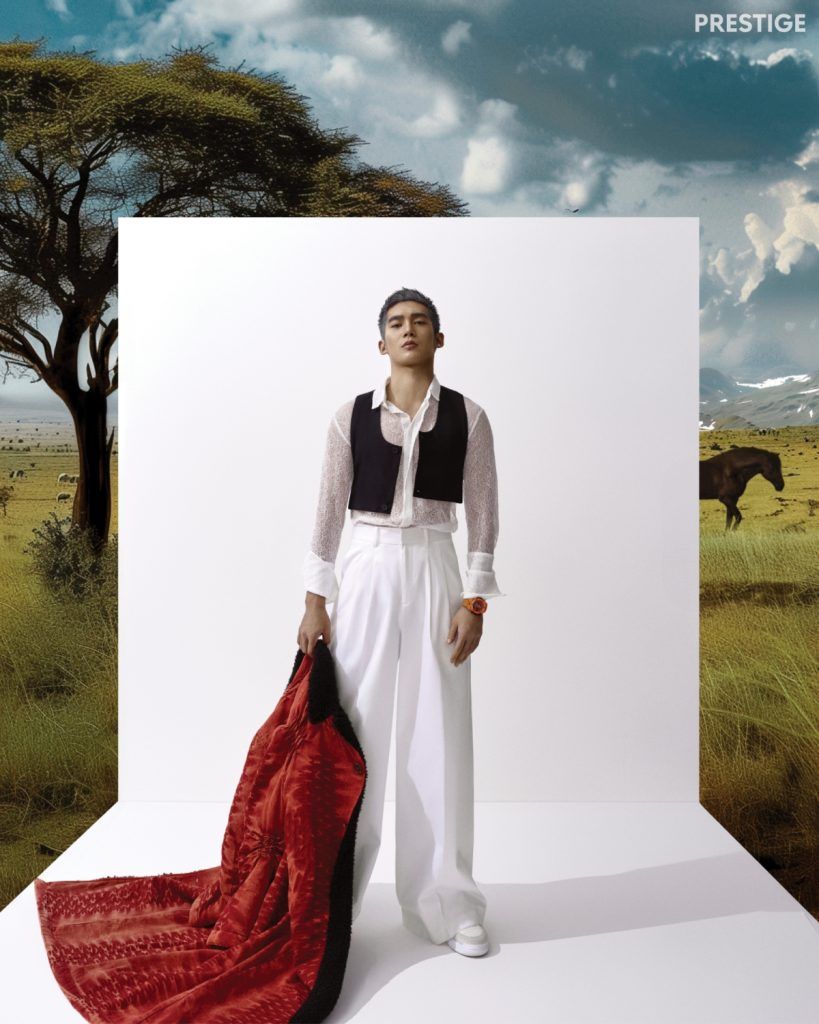
Yu was 20 years old at the time. In his youth, he’d been a stellar basketball player and a second-grade national team member. He also loved music and studied guitar. Yu’s parents were always supportive of their son’s interests. “Growing up, I was taught that interest is the best teacher,” he says. “When you’re interested in something you can learn it well. If you don’t like something, putting in a lot of effort won’t necessarily make you good at it. That’s what my parents believed and they’d always support me if I liked something, including basketball, which they thought was good for both my physical and mental health, as well as music and painting, which I learned when I was little.”
Yu is a talented musician, but on the advice of showbusiness friends he soon decided to pursue a career in acting, which wasn’t easy, and he failed many auditions. His first experience on camera was shooting a basketball-related advertisement. But as luck would have it, the producers of The Creation of Gods saw it, searched for him online, and Yu quickly found himself signing up for the eight-month training camp.
“I simply wanted to take classes,” says Yu, who was told he’d not only learn how to act, but also take lessons in martial arts, horse-riding and even ancient etiquette. “When I applied, I didn’t even think about what characters I’d be able to get,” he says. “I only wanted to take some acting classes as I never learned officially before and at that point I was even uncertain whether I had the talent for it or not.


“I’m so grateful to The Creation of Gods team,” he adds. “They treated everyone equally. You don’t ask heroes where they come from. It didn’t matter whether we went to acting school or not: the director interviewed and picked us based purely on our performances, which obviously took a lot of time. Other movie producers probably won’t do it, because usually you have limited time to prepare. So people without acting degrees will be excluded as they’d look at academic background as a basic criterion for their candidates.”
For eight months, the actors trained 12 hours each day, six days a week, with assignments after each class and a big test performance every two months for the directors, producers and investors. It was an incredibly stressful environment, and Yu describes his fellow actors as comrade-in-arms and the film set as a battlefield, where candidates would be eliminated at every stage. But this was where Yu’s previous training as an athlete kicked in.
“It helped me a lot,” he says. “It taught me how to bear hardships, be self-motivated and emulative. You can lose on the rankings, but I couldn’t lose to myself. As athletes, we work hard to become number one. However, not winning the championship doesn’t mean you’re a loser: the real loser is the one who doesn’t work hard. So I had that mindset at training camp. I worked hard and I knew that if I didn’t get a character, as long as I had put in 100 percent effort, I’d have no regrets.”
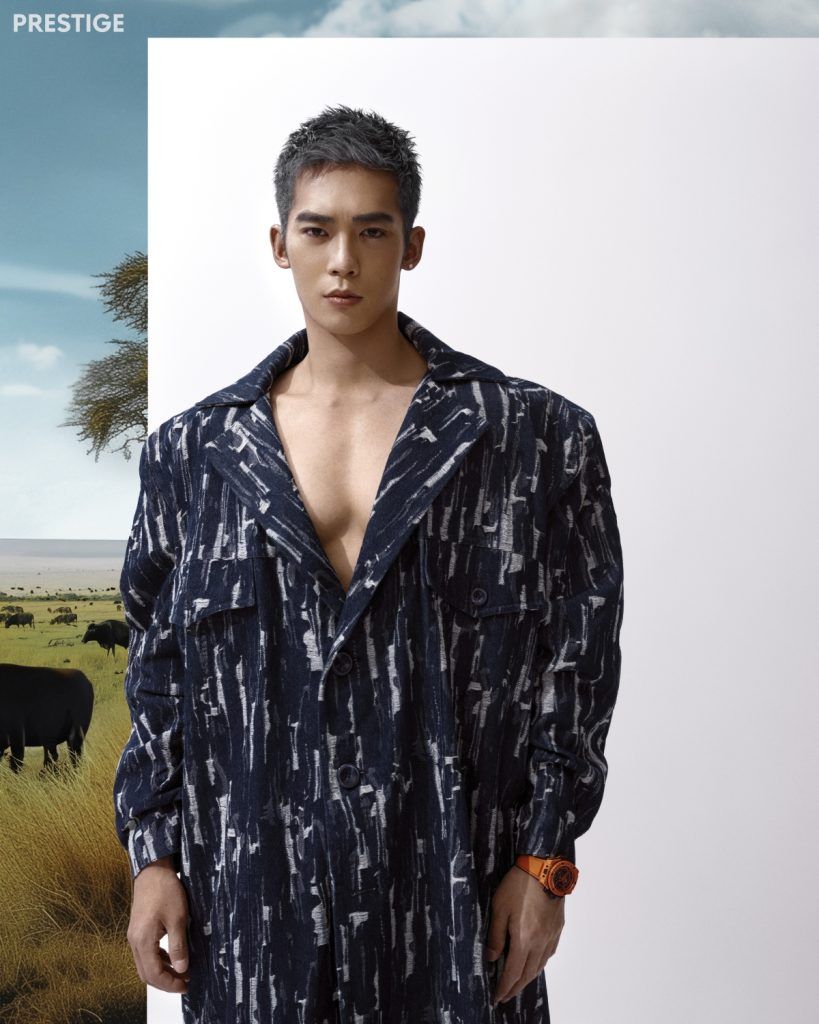
As training progressed, Yu began to see his own improvements and started dreaming of gaining a role in the movie. “But I never thought I’d be the main character,” he says, still incredulous. “I was asked to head out to try on the costumes while we were in training class and they let me try on different ones, including armour,” he recalls. “I thought that was so cool, and then one of the members of the costume department told me that these were Jifa’s costumes.”
Jifa would become one of the main protagonists in the film, but Yu didn’t know that initially, only having read brief biographies of each character. “The director purposefully did that because he didn’t want us to act like characters in our daily life,” he explains. “He wanted to observe us in our most authentic selves to see who fit which character best.”
Yu was shocked when he eventually read the script and found out about Jifa’s arc in all three films. “I even get to perform King Wu’s Punitive Expedition,” he says, referring to a significant event in Chinese history. His first act was also the first for the whole team – a solo performance that marks the movie’s last scene. “They brought me out to Xinjiang and I told myself I must do well. I knew they’d only confirm the role if I did well, because it’s such an important scene,” he says. “I was happy because at last I had the chance to start out.
“I’d been questioned by others for so long and I was frustrated that young talents couldn’t get opportunities to showcase their skills,” he explains. “When we’re 18 or 19 years old, we’re at the stage where we’re most passionate about achieving our dreams and we need encouragement to go further. Instead, so many talented ones give up, because rejection is such a cruel blow. If you find kids who are talented at something, you must encourage them to go further since they might become someone important in the field in the future.”
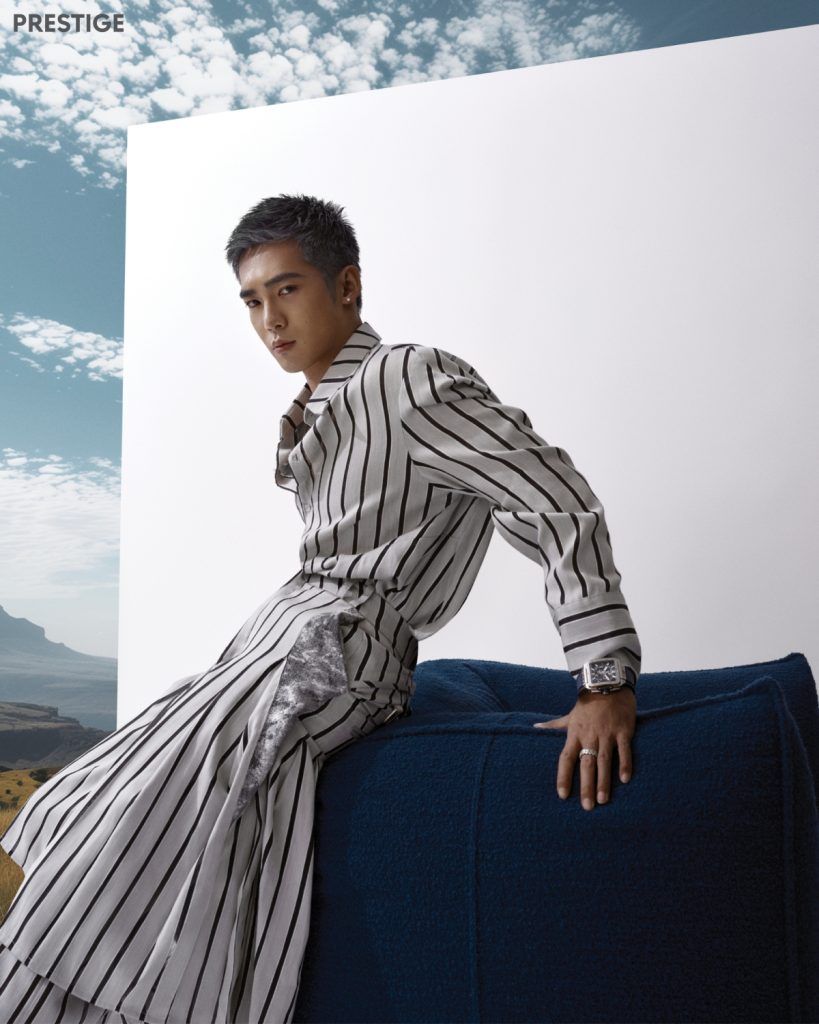
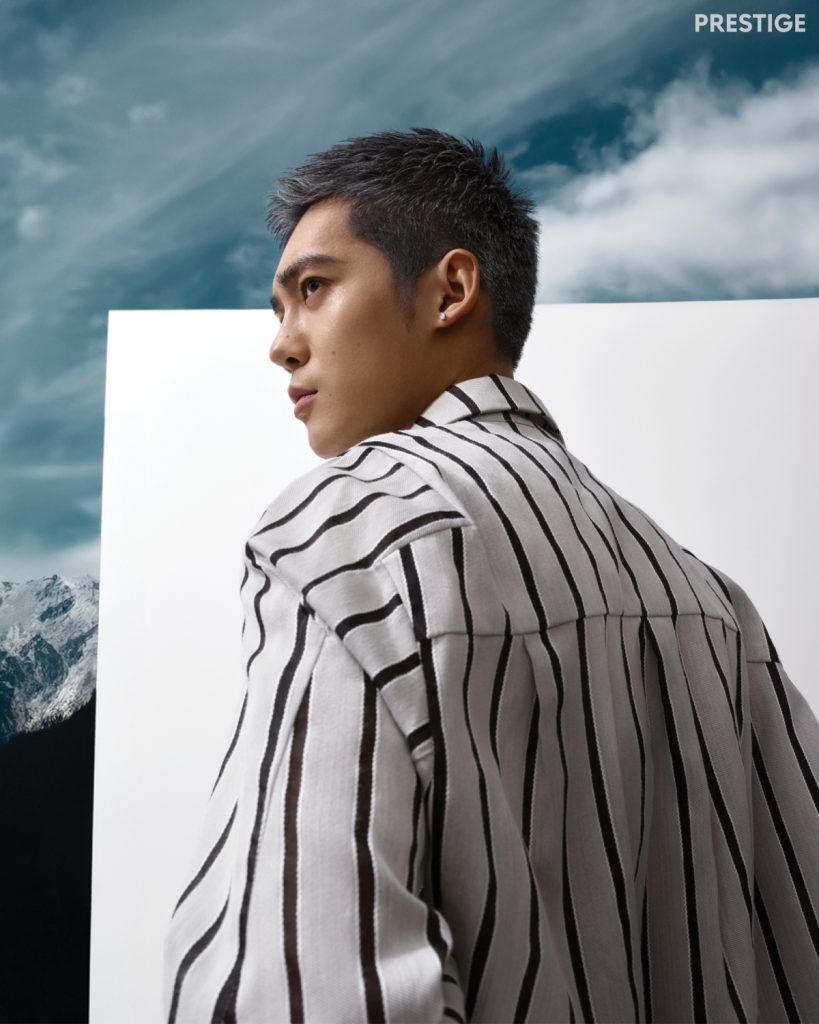
Wuershan is the type of director who’d give the next generation their deserved chance. Yu clearly admires him, calling him a “brilliant artist” and “his teacher”. The Creation of Gods is the most ambitious and most expensive production in the history of Chinese cinema, driven by Wuershan’s exacting and bold vision for the trilogy. He took no short cuts to finding the perfect cast to embody his legendary characters, and he took his time teaching the young actors. He imported pure thoroughbred horses and built facilities from scratch to house and train the animals. His crew numbered more than 2,000, including 400 craftsmen employed to build the wooden set-pieces. This massive effort paid off: not only did The Creation of Gods become China’s top-grossing film, but the country’s movie industry was on the cusp of becoming the biggest in the world – with Wuershan standing at the forefront.
“I’m lucky to have cooperated with Wuershan at a young age,” Yu says. “He helped me build a good understanding of the industry when I was still ignorant and helped to shape my aesthetic in art and figure out what kind of actor I wanted to be. Even now, we still communicate frequently about movies. He’ll recommend me many literary films and tell me what kind of movies would fit me, and what kind of emotions I still need to learn.”
From Wuershan, he learned not merely to read words from the script but to get into the mind of the director and discover the inner motive of every emotion, and how each performance fits into the bigger picture. “Acting isn’t robotic,” Yu explains. “It’s like the flow of water. When you eventually get the feelings and the logistics of the act, you can freely utilise the space to perform.”

Did Yu face any difficulties while filming? Funnily enough, it wasn’t the stunts, which he completed all on his own, but the language. “When I first entered training camp, my Mandarin pronunciation wasn’t accurate, as I spoke in the Northeast dialect and I couldn’t distinguish between a flat tongue and a cocked tongue,” he replies. “It was super-stressful at first, but I’d practice tongue-twisters. I also stupidly just read everything I saw out loud every day, no matter if I was reading or browsing on my phone, just to remind myself to speak in standardised Mandarin.”
But when filming was over, Yu continued to struggle with work. Filming ended in 2020, and yet the movie was only released last year. “My company had plans for The Creation of Gods to be my debut work, so I couldn’t shoot anything else in those three years,” he says, resignedly. “People always think I became famous in a short period, but it’s not true. I entered this industry seven years ago and I got this important role at a very young and immature age, so I had huge expectations waiting for it to be released. It was quite difficult to see my peers starring in different projects while I waited.”
Instead, during this time, he found solace in horse riding and archery, skills he continued to perfect long after filming for The Creation of Gods had ended.
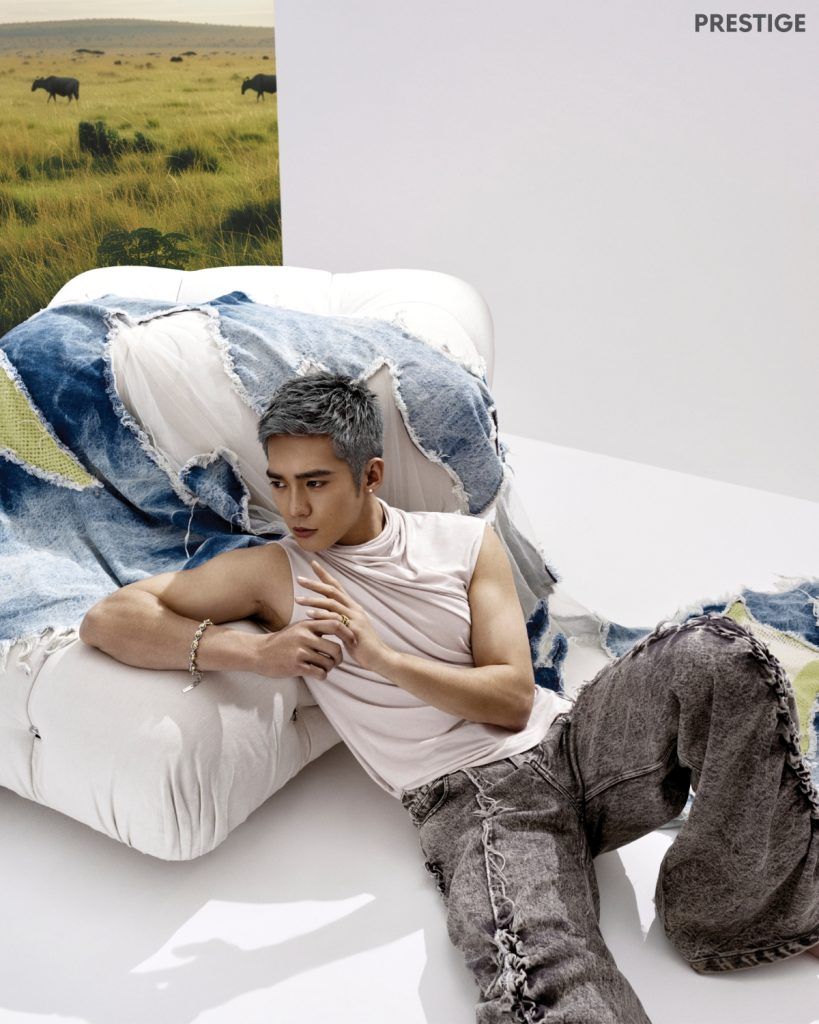
One thing led to another – and Yu also found his horseback archery skills useful for his latest project, the television series To the Wonder, which enthralled global audiences with its authentic portrayal of Kazakh nomads on its debut in competition at Canneseries last April. Based on an adaption of My Altay, a novel written by Li Juan, and directed
by Teng Congcong, the series has achieved top ratings on national TV channels in China.
“One of my dad’s favourite authors is Li Juan, so we had the book at home,” Yu says. “My dad thought it was a good opportunity and encouraged me to try. I figured it was a great project after I read the script, passed the audition and got the role.”
He had a good relationship with director Teng Congcong, whom he says always gave him space to act and discussed the script with him. “She was open for me to design some scenes by myself and I’d provide her with multiple takes and she’s really good at picking the best one. With her delicate sensibility she’s good at observing the details, and knows how to portray female innocence and difficulties in life, but she’s also capable of finding men’s charm and magnifying it from a women’s perspective.”
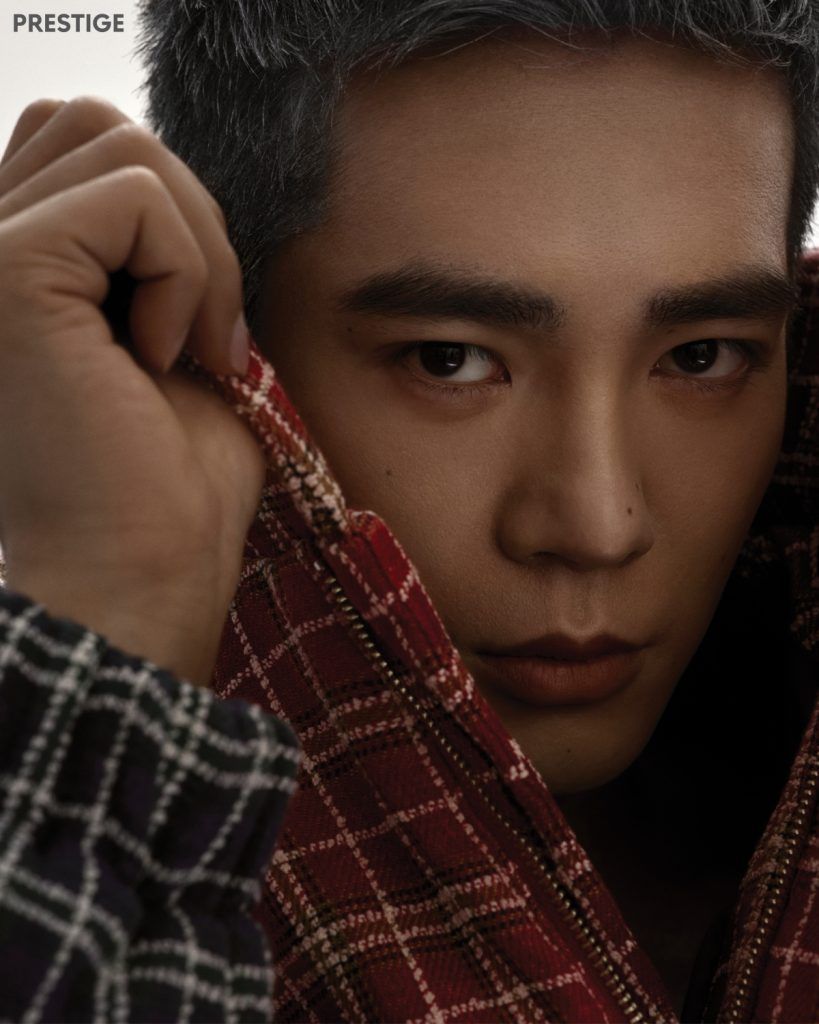
Don’t get Yu wrong though, charm isn’t only about looks. The actor is good-looking in real life, but he says, laughing, “You can see from my appearance in To the Wonder that I don’t care if I look terrible in a movie. That’s just too superficial for me.”
With two hugely successful projects under his belt and a career fast on the rise, Yu is today also an ambassador for luxury brands such as Hublot and Chaumet, but the only thing he wants is simply “to become a good actor”. Those years of training, shooting and waiting have taught him that things don’t always come easy. “I need to remember how I started and how I got the achievements, and that’s the mind set I need to keep. Becoming famous isn’t enough, it’s just the start and there are even bigger things that I want to try, so I’m not proud of myself yet because it isn’t the time.”
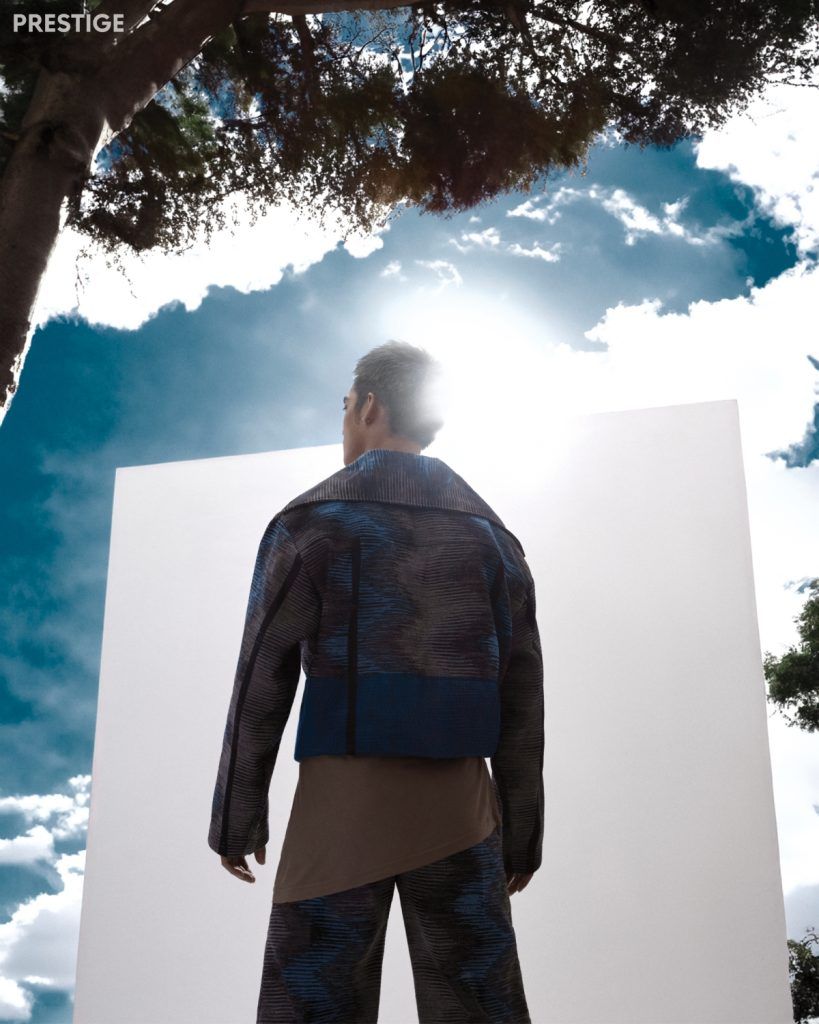
He’s an actor, an athlete, a stuntman and a horseback archery expert who sees many possibilities for himself in the future. He’s unfazed by negative voices and those who spread falsehoods about him, which only motivate him to work even harder. “I’m looking 20 years ahead,” he says, confidently. “My goals require a lot of effort and learning, so I’ll work hard.
“It’s easy to be misunderstood in society. People who don’t know me always think of me as an idol or a streaming star, or stick labels on me,” he says. “But the only thing I want is to let people know when and what I’m filming. I should feel lucky to have people’s attention, but I know that as long as I work hard to achieve what I want, I have no regrets. My goal is achieved.”